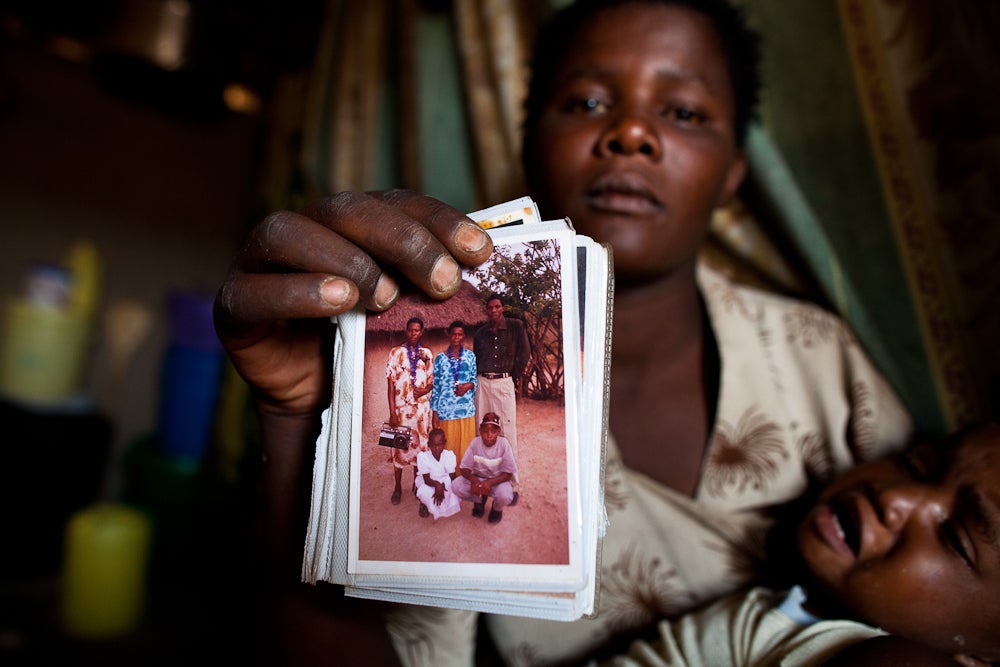New community grievance mechanism falls short of company’s human rights obligations
(April 17, 2018) –Tanzanian and international human rights groups today urged London- listed Acacia Mining’s Board of Directors to step in to improve the company’s human rights record at its North Mara Gold Mine in Tanzania. Acacia’s is 63.9 % owned by Canada’s Barrick Gold Corporation.
In an open letter to Acacia’s board ahead of their annual general meeting in London on April 19, the five rights groups expressed alarm that Acacia’s new community grievance mechanism to address long standing human rights and other complaints at the North Mara mine falls well short of the company’s human rights obligations.
“At a time when Acacia Mining’s contribution to Tanzania’s economy and its people is under intense scrutiny, Acacia should implement a grievance mechanism that puts victims first and treats them fairly, not one which jettisons basic human rights principles,” said Anneke Van Woudenberg, Executive Director at RAID, a UK-based corporate watchdog. “There has never been a more crucial time for Acacia’s board, including Barrick Gold executives, to ensure Acacia meets its human rights obligations.”
Since 2017, Acacia has been entangled in a multi-million-dollar tax and export dispute with the Tanzanian government. The company has been blocked from exporting much of its gold ore, dramatically reducing its profits. In October 2017, the Tanzanian government and Barrick announced a proposed deal to pave the way to resolving the dispute including a $300 million goodwill gesture to the Tanzanian government and a 16% stake in its Tanzanian mines. The working group established to iron out the details has yet to finish its work.
There have been numerous reports about serious human rights violations including killings, beatings and sexual violence at the North Mara Mine over the past several years. In March 2017, after considerable pressure to publish further information, Acacia confirmed there had been 32 “trespasser-related” fatalities over a two-year period between 2014 and 2016. The company failed to publish information about injuries. A 2016 parliamentary inquiry into complaints at North Mara mine received reports of 65 killings and 270 people injured by police jointly responsible for mine security.
In September 2017, following a visit to the North Mara Mine by a delegation of eminent international legal judges and experts, the International Commission of Jurists (ICJ) said it was “deeply concerned about the gravity of many of [the] allegations and the difficulties [victims] experienced in accessing any adequate remedy and reparation.”
Following earlier criticism by RAID and others, Acacia sought to revamp its flawed community grievance mechanism at North Mara Mine, which provides a process whereby victims can bring human rights and other complaints to mine officials for investigation, compensation and remedy. Acacia’s original mechanism appeared primarily aimed at limiting the company’s legal liability. In a confidential process, victims were pressed to sign settlements they did not understand without a lawyer present and to waive their rights to turn to the courts. Acacia’s own statistics, published in 2017, showed that 93 per cent of victim’s claims were rejected with no explanation provided.
The company’s revised mechanism, posted for consultation to Acacia’s website in December 2017, falls well short of what is required, the rights groups say.
In their letter to Acacia’s board, the groups say, “the revised mechanism is still not compliant with the company’s human rights obligations, including the effectiveness criteria for operational-level grievance mechanisms set out under the United Nations Guiding Principles on Business and Human Rights.” The letter says it “lacks human rights benchmarks, lacks transparency, lacks independence, provides very limited legal assistance for an overly legalistic process, and creates confusion about whether it will accept complaints about police abuse at the mine site, among other problems.”
Victims of abuses appear increasingly frustrated with the lack of accountability. In 2017, a number of the victims of security-related violence instructed UK-based lawyers Deighton Pierce Glynn, and filed legal cases saying Acacia has been unwilling to adequately compensate them. These are the latest batch of victims turning to the UK judicial system. In 2015, Acacia reached an out-of-court settlement in the UK with 10 Tanzanian claimants.
RAID and other civil society groups have previously raised concerns that company controlled grievance mechanisms are not appropriate for handling serious human rights violations such as killings and rape, crimes which should be handled by appropriate judicial authorities.
In October 2017, seven rights groups wrote to Tanzanian President, John Magufuli, urging him to resolve Acacia’s longstanding human rights violations at its North Mara mine as part of the negotiations with Barrick, including launching an urgent judicial investigation into the unlawful use of force and other human rights violations by Tanzanian police and mine security.
“Acacia Mining and Barrick Gold should take on board the views expressed by Tanzanian and international legal experts and ensure the North Mara community grievance mechanism is independent, fair and transparent,” said Felista Mauya at Tanzania’s Legal and Human Rights Centre (LHRC). “Tanzanians deserve to have their rights respected by multinational companies conducting business in our country.”
The detailed assessment of the revised community grievance mechanism by RAID and LHRC provides further information.
Update:
Acacia Mining responded to RAID and LHRC’s assessment of the company’s grievance mechanism on 18 April 2018. The full response can be read here:
RAID response back to Acacia Mining on 1 May 2018, including a summary of continued concerns, can be read here.
For further information:
A detailed report “Adding Insult to Injury.”
RAID’s analysis of Acacia’s publication of deaths and injuries at the mine:

